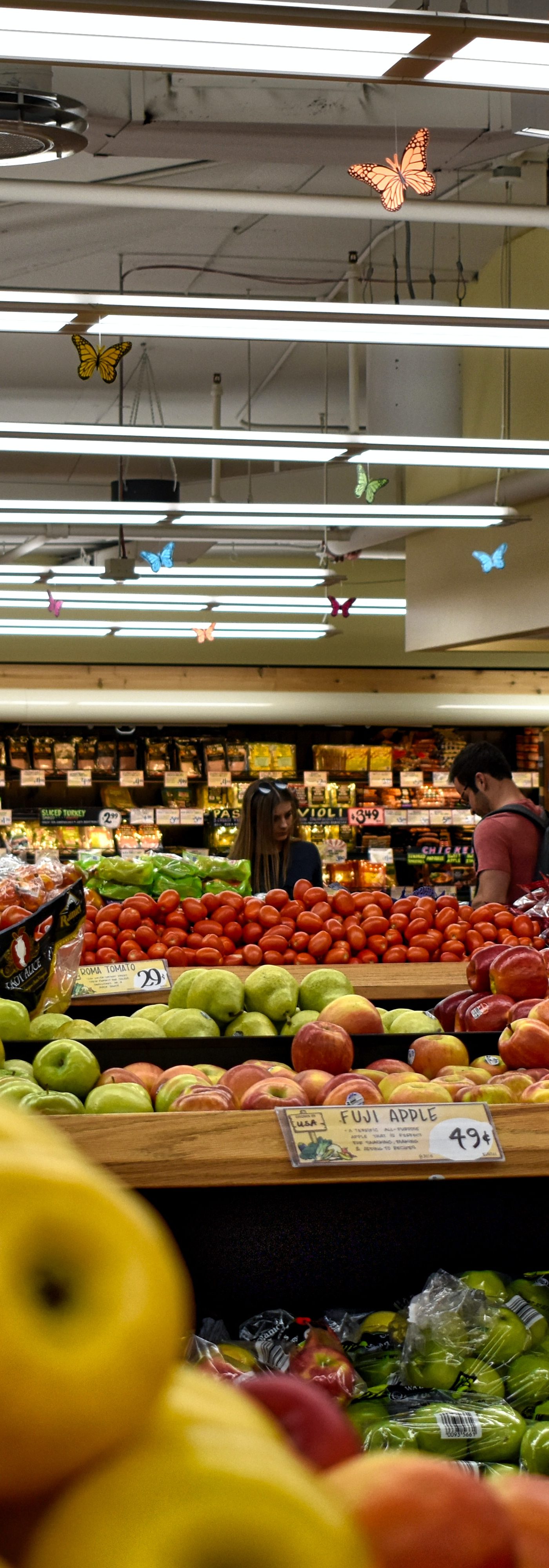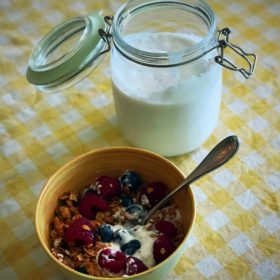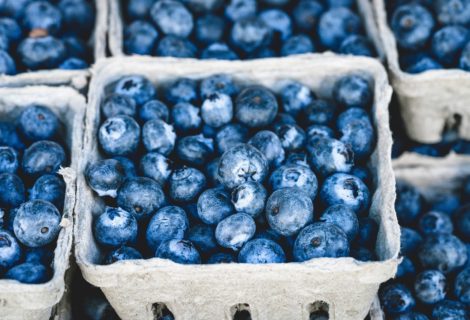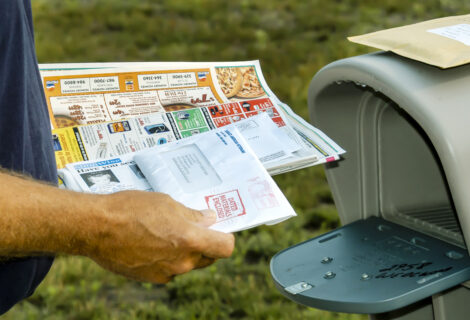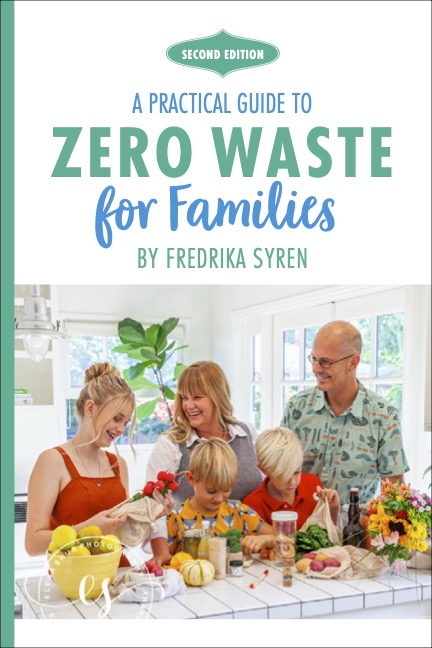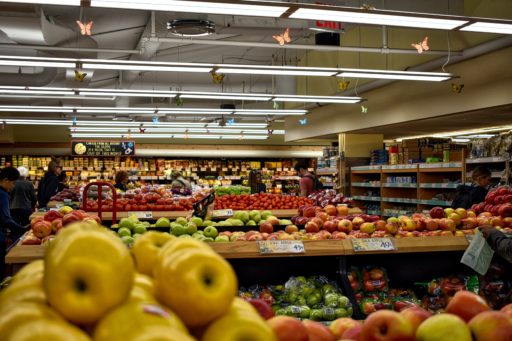
How to lower your cost of food.
Many people struggle with food costs these days, especially since the price of food has gone up a lot during this pandemic.
Eating healthfully on a budget might seem like an impossible task, especially with children. Believe me, I know because I’m raising three hungry children, and I’m focusing on organic and healthy plant-based food. A year ago, our food bill was too high. It needed to come down and, since then, I have adopted a few tricks that help us eat organic and healthfully on less money. These days, our food bill is about $900 a month to feed 5 people eating only organic food — and that includes sending school lunches every day.
So, this is how we do it:
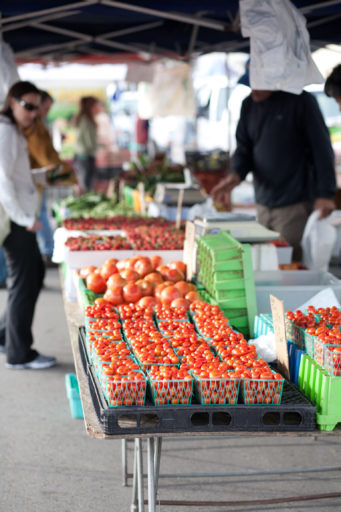
We shop at our local farmers’ market once a week, and every two weeks we grocery shop at our coop for all our staple foods like milk, yogurt, butter, oats, pasta, rice, beans, etc.
 We make a budget and stick to it. I have given our family a budget of $800 per month, which includes eating out occasionally. I truly believe that setting a firm budget is a huge help because, for me, it means I should buy only what we need and that I must comparison shop to find the best deals.
We make a budget and stick to it. I have given our family a budget of $800 per month, which includes eating out occasionally. I truly believe that setting a firm budget is a huge help because, for me, it means I should buy only what we need and that I must comparison shop to find the best deals.
We skip prepackaged foods and go for bulk — prepackaged food might be convenient, but it’s usually more expensive and it’s not very good for the planet. Now middle of a pandemic some stores no longer offer bulk food and some sell it prepackaged. At our coop, I can still buy lots of snacks in bulk and for dried staple foods like flour, pasta, rice, beans, lentils and oats we can order 20 or 40 pound bags so it saves me money and reduces waste. I don’t buy very many canned foods and, being vegetarian, beans are the staple of our diet. I cook dried beans in large quantities in a crockpot, then freeze smaller portions in recycled glass jars. On Sundays, I bake all our bread for the week and freeze it.
 We reduce food waste: ½ of all waste in landfills is food waste because we have a tendency to waste food and to forget about what is in our fridge or freezer. Before our budget changed, we ended up throwing away food that had spoiled by the end of the week. If we ran out of something — well, we simply went to the store and bought more. Nowadays, I make meals from the food we have available at home, especially using fresh food first. At the end of the week, I use the vegetables that are getting soft or limp for stir-fries and soups.
We reduce food waste: ½ of all waste in landfills is food waste because we have a tendency to waste food and to forget about what is in our fridge or freezer. Before our budget changed, we ended up throwing away food that had spoiled by the end of the week. If we ran out of something — well, we simply went to the store and bought more. Nowadays, I make meals from the food we have available at home, especially using fresh food first. At the end of the week, I use the vegetables that are getting soft or limp for stir-fries and soups.
Here are other tips for reducing food cost:
Sign up for a CSA box: CSA (Community Supported Agriculture) boxes usually are packed with local, seasonal, organic produce — and usually at an affordable price.
Look out for those sales: When our local grocery store had a sale on organic bananas, we loaded up and froze a ton for smoothies, ice cream and banana bread. Lots of markets offer discounted food products, so make sure not to miss out.
Eat in season: We eat local food as much as possible; and we eat for the season, meaning that during the winter, for example, we eat oranges and apples mostly. Before, we used to eat kiwi and strawberries and anything else we fancied even though they weren’t “winter foods.” Now those are treats when they appear at the farmers’ market during summer months.
So, to sum it up, here are how we have lowered our food bill:
- Buy local as much as possible.
- Eat for the season.
- Grocery shop only once a week and stick to it.
- Limit buying canned goods.
- Buy in bulk as much as possible —
- Have at least one meat-free day a week — meat and fish are expensive.
- Serve a lot of fruits and vegetables with each meal — they are better for your health and will fill your tummies, too.
- Be creative at the end of the week and cook from what you have at home — leftover vegetables and beans can become wonderful soups, pasta dishes, stir-fries and stews.
- Use leftovers the next day to cook another meal — leftover pasta can be fun pasta salad; leftover chicken can be used for sandwiches, etc.
- Clean out your fridge and freezer often and inventory what you have, then build a meal plan from that. So many times, I have found food that would have been wasted otherwise because I would not have known I had it.


